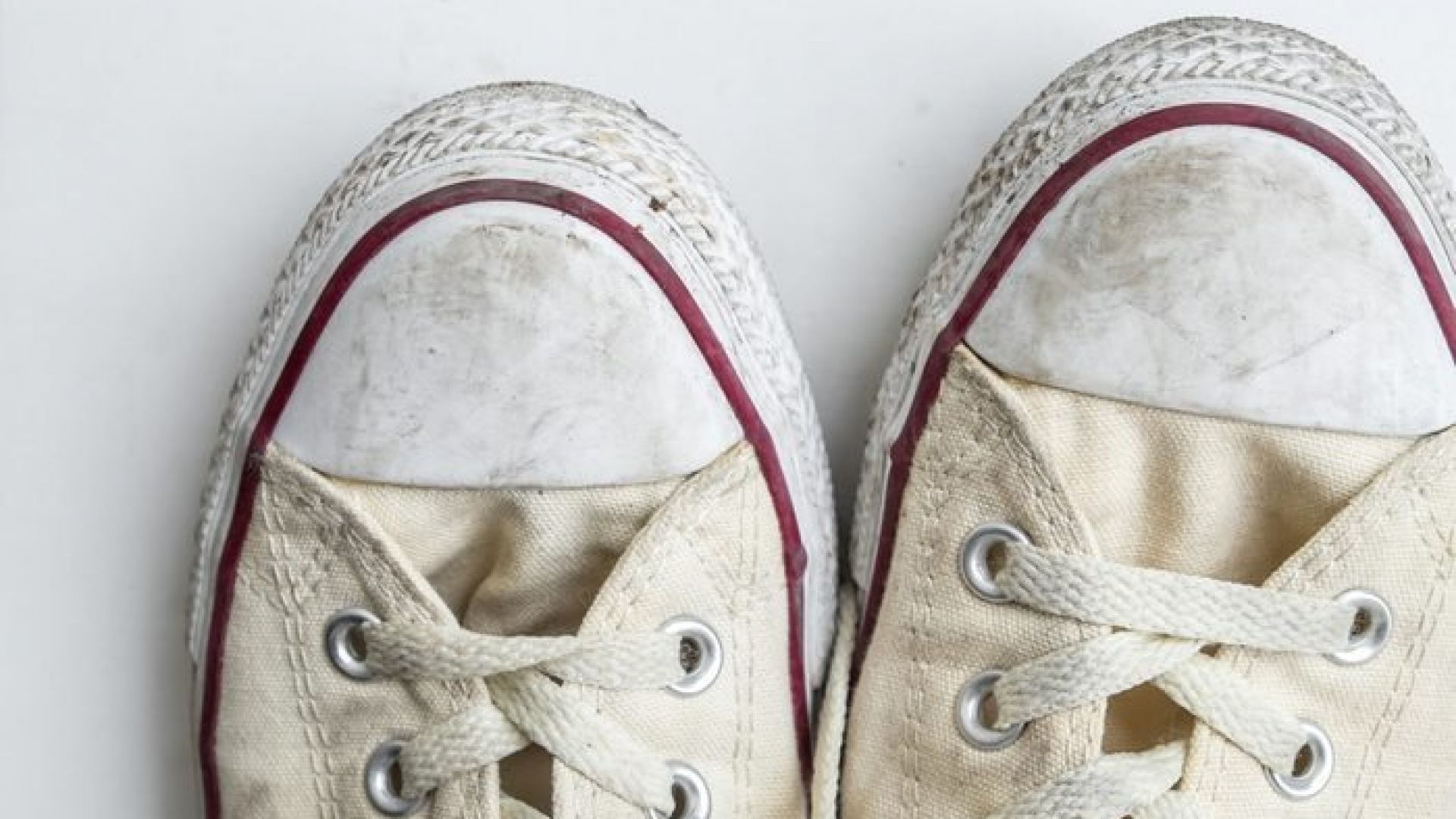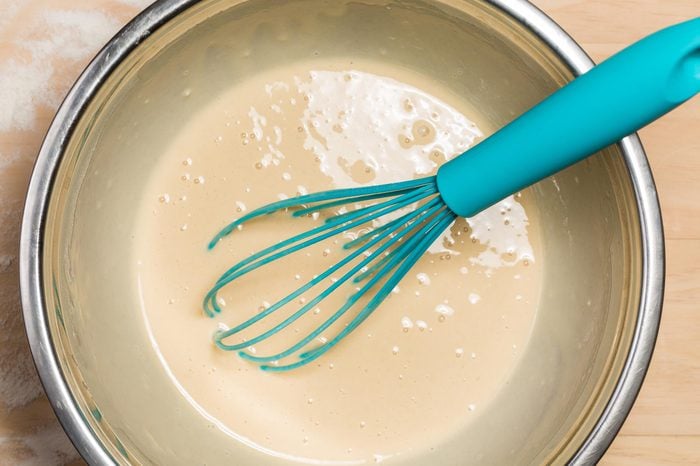
Old pancake mix
According to experts at DoesItGoBad.com, Packaged pancake mixes (along with many other cake mixes) can be toxic in certain circumstances. It’s a breeding ground for hard-to-spot mold and bacteria, which can be fatal for allergy sufferers. If it is past the “best by” date on the label, toss that expired box or bag right away. Make sure you also get rid of these everyday items that could be toxic.

Dried flowers
Pets tend to chew on things they aren’t supposed to—and that can be dangerous if you have dried flower arrangements lying around. According to The Nest, the issue is twofold: The flowers themselves pose a threat, and so do the materials used to make the flower arrangements. Many plants are toxic to both dogs and cats, and these materials can cause serious intestinal blockages or even acute poisoning.
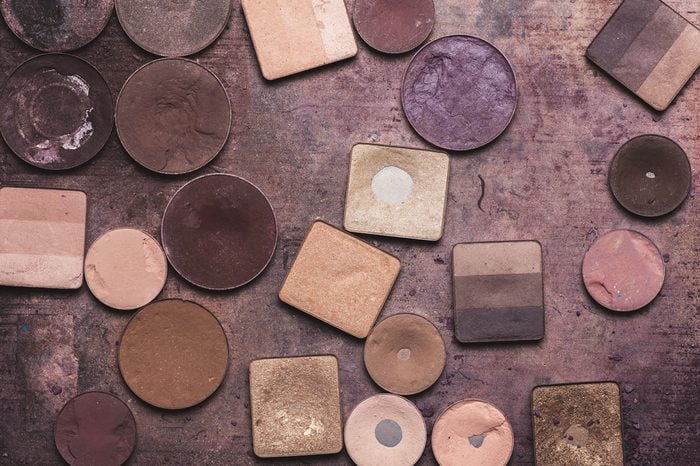
Expired makeup
Yes, beauty products do go bad. Even worse—they can cause breakouts, skin parasites, infections, and loss of vision if not disposed of at the proper time. While it may be difficult to toss away our precious samples, old makeup can serve as a breeding ground for germs, harboring nasty bacteria that can wreak some serious damage. Expired makeup may be totally okay to trash, but these 8 things are actually illegal to throw away.
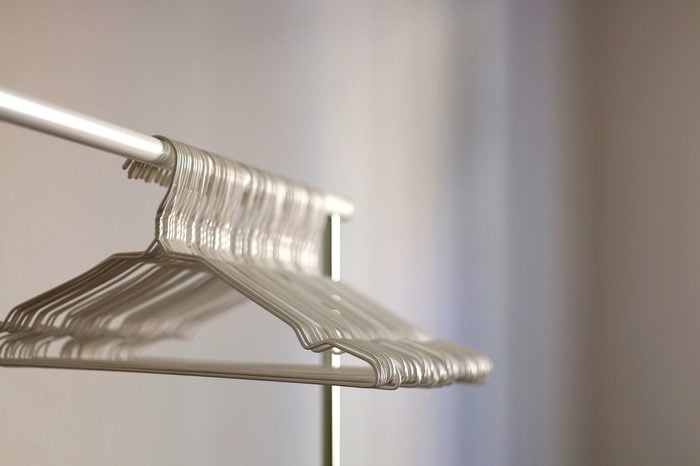
Wire hangers
Keeping your clothes on flimsy metal for too long can damage your favorite pieces. Maeve Richmond, a home organization expert and founder of Maeve’s Method, tells Well and Good: “Wire hangers truly are too thin. Not only can they cause awkward stretch marks on clothes, but they will bend over time, causing unsightly bunch-ups in our closets, and our clothing to hang at funny angles.”
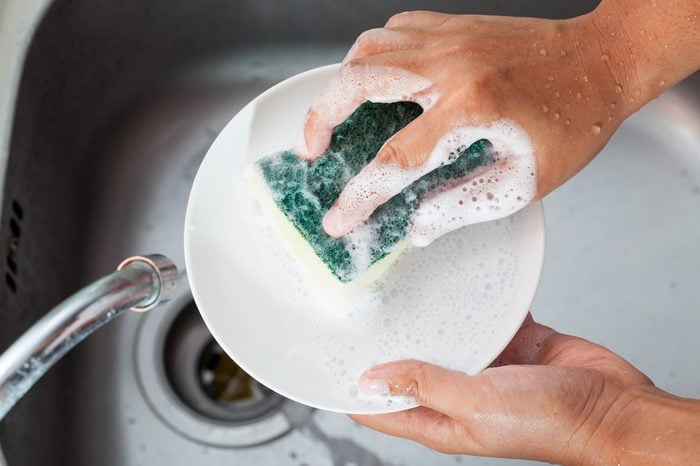
Old dish sponges
A study published in Scientific Advances reveals that the most bacteria-riddled thing in your house is your kitchen sponge. Their porous nature and liquid-absorbing abilities make them the ideal living space. Even if you’re practicing proper hygiene—soaping and rinsing the sponge regularly—it won’t be enough. Experts recommend replacing your kitchen sponge weekly. These are 15 other things you should be replacing more often.

Stale spices
Most people choose to believe spices can last forever—they don’t. A report from the FDA notes that common imported spices are contaminated with salmonella at twice the rate of all other imported foods, including coriander, oregano, basil, sesame seeds, and black pepper. If you want to avoid an unexpected bout of food poisoning, make sure to clean out your pantry regularly.

Cheap jewelry
Those bargain deals are too good to be true: A non-profit organization called The Ecology Center ran tests on 99 pieces of jewelry that were purchased from 14 different discount stores from around the country, like Target, Claire’s, Forever 21, and Walmart. They found that over half of the jewelry—all of which cost less than ten dollars—had high levels of toxic chemicals; 27 of the pieces had lead levels that exceeded the safe limit (300 ppm) for children’s products. Make sure you throw away these kitchen items right now.
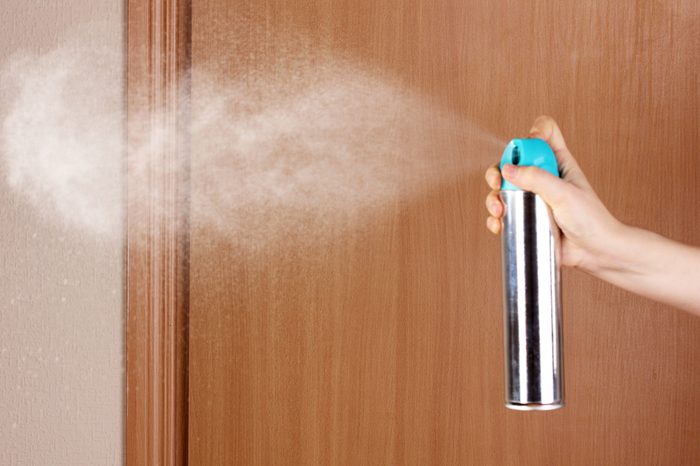
Air fresheners
You may be a fan of the way they make your house or car smell, but air fresheners can contain serious toxins called phthalates—and many don’t even list them as an active ingredient. According to the Natural Resources Defense Council, those toxins can easily affect hormones and reproductive health, especially in children. Side effects for men included lower testosterone levels, decreased sperm counts, and lower sperm quality.

Off-brand phone chargers
You may be tempted to buy that cheap model at the airport, but studies show this can pose dangers to your expensive smartphone. Ken Shirriff of How-To Geek took a dozen chargers and put them to the test. He found that most off-brand chargers provided inconsistent power, leading to battery damage. If you want to save money, well-established third-party charger brands like Belkin and Monoprice did well in Shirriff’s tests.
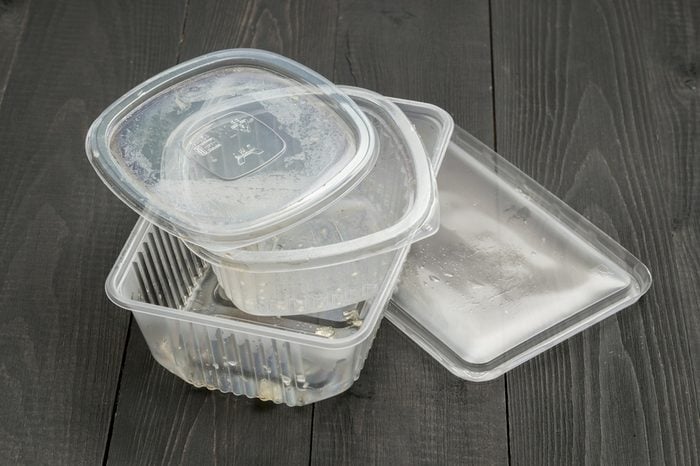
Plastic containers
Tupperware, Gladware, Snapware, you name it—everyone has a collection of plastic containers. They’re great for storing leftovers, but studies show these can contain high levels of bisphenol-A (BPA), a toxin frequently found in plastics. Even in low doses, it can have a significant impact on hormonal balance and the brain. Make sure to never use plastic containers in the microwave unless they are labeled microwave safe. Try using glass containers instead.
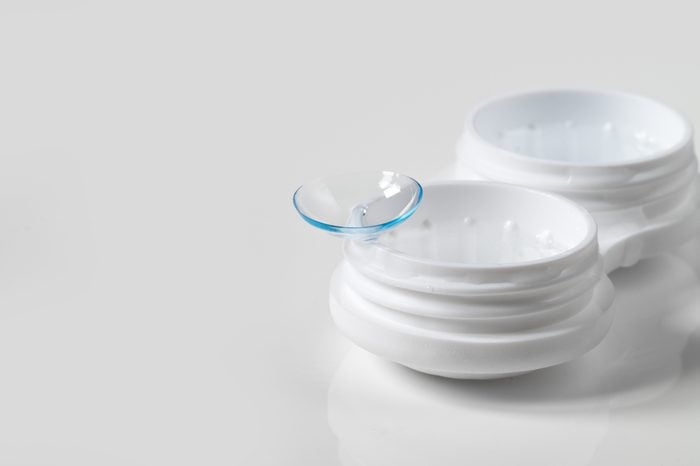
Old contact lens case
If you’re neglecting the case you store your contacts in, you’re risking an eye infection according to optometrist Reecha Kampani, OD, from Cleveland Clinic. She advises throwing out your solution daily and replacing the lens case once every three months. Using a case for too long can add to pathogen build-up, leading to potential scarring and vision loss. These are things you should never throw in the recycling bin.
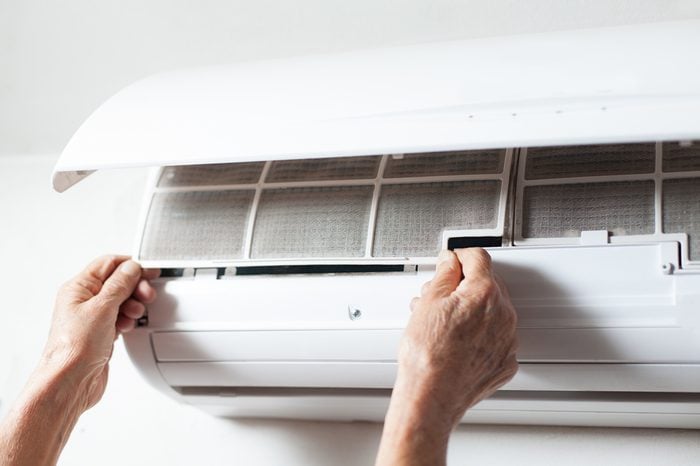
Clogged air filters
Some studies suggest that a poorly maintained A/C system can become contaminated and be harmful to your health. Their findings note that moisture-related HVAC components, such as cooling coils and humidification systems, can trigger symptoms like upper and lower respiratory problems, eye and skin irritation, headaches, and fatigue. Older filters are more prone to contamination, so be sure to change them every 30-60 days.
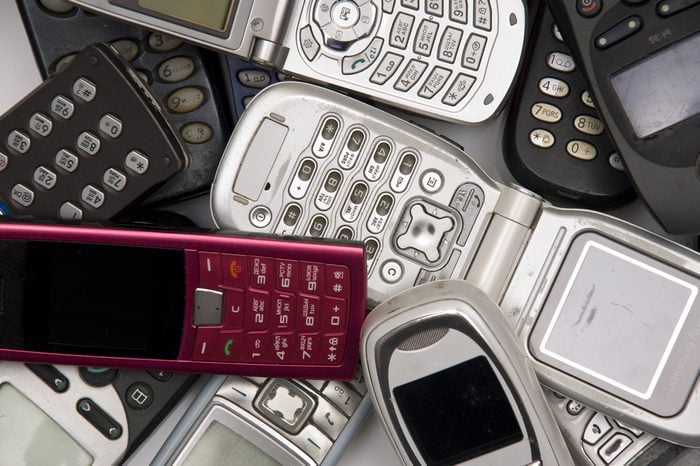
Old electronics
How many old cell phones do you have cluttering up drawers? How about outdated laptops stacked in the closet? You need to get rid of them because they’re chock full of toxic stuff, like arsenic, lead, and cadmium, that erode over time. The lithium batteries in old electronics can also burst, creating a potential fire risk. But unlike the other things on this list, don’t throw them in the trash—here’s a guide to disposing of old electronics safely.

Old bras
Bras shift and stretch over time—and this is more than an aesthetic nuisance: You won’t get the support you need from that worn-out underwire. According to the Huffington Post, a bra’s lifespan could be only up to eight months. If the band is stretched and not fitting as well as it should, it may be time for a new one.
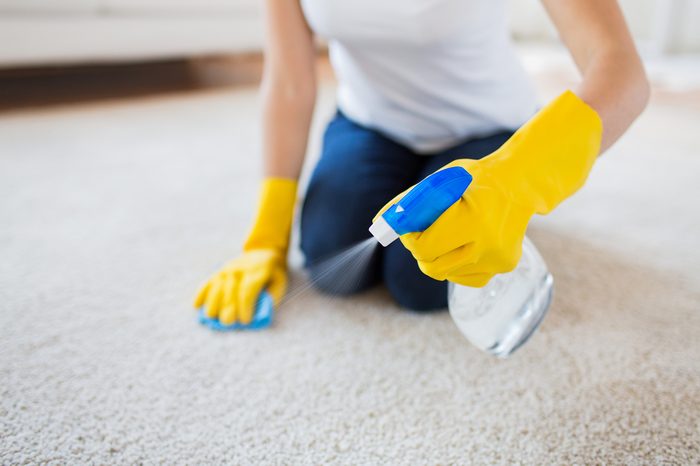
Fabric sprays
While they might protect your couches and chairs from stains, many of these sprays contain questionable chemicals that can contaminate the air in your house. The National Consumer Affairs Center of Japan found fluorine resin in four of seven major spray brands. The size of the particles was enough that inhaling the spray would pose a significant health risk.

Old non-stick cookware
Non-stick pots and pans are made using a carcinogenic chemical called perfluorooctanoic acid (PFOA), which starts emitting toxic fumes every time you cook. This kind of cookware is associated with harmful side effects to the liver, thyroid, and immune system in general, according to the EPA. Go for stainless steel, glass, ceramic, or iron pots and pans instead. Make sure you always throw out these 9 things when you move.
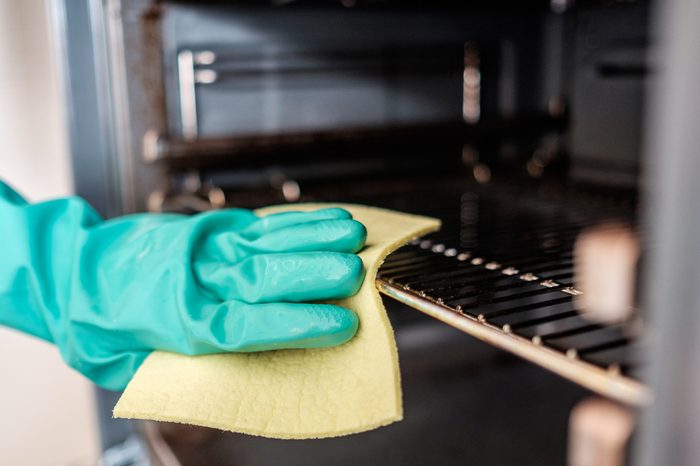
Oven cleaner
Most of these cleaners contain highly corrosive chemicals that can cause redness and burns if they come in contact with the skin. Don’t worry, you can always use alternatives like baking soda paste instead. Simply combine baking soda and water to create a safe oven cleaner.
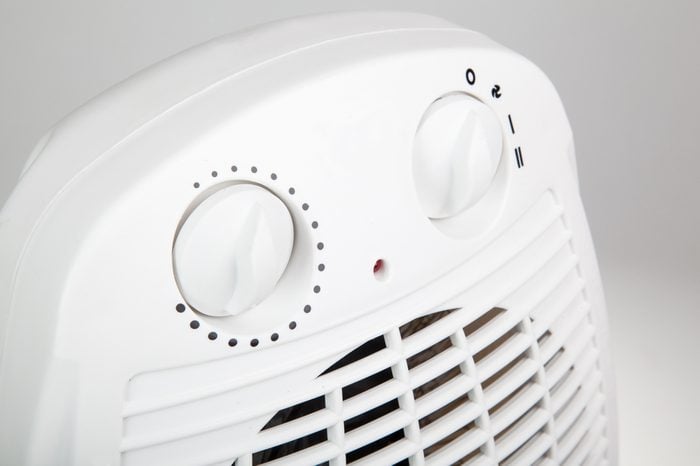
Small space heaters
Gas-powered anything releases toxins into the air, which is why using them indoors is extremely dangerous. It’s a common cause of carbon monoxide poisoning—a condition that presents very few warning symptoms. In fact, at least 430 people die in the U.S. from accidental CO poisoning every year, according to the CDC. They recommend never using a gas range or gas oven to heat a home.

Worn extension cords
Any frayed electrical cord needs to be replaced immediately—they’re a big source of accidental electrocution. Immediately throw out any worn and frayed cords and make sure to obey the fine print.
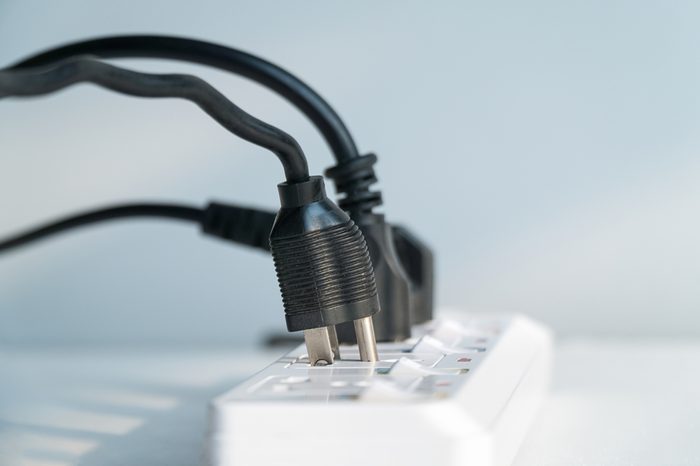
Old power strips
These handy devices add outlets and provide protection from electrical surges to your valuable TVs, computers, and other electrical devices. But they don’t last forever, according to howtogeek.com. If you’ve had it for more than a decade, it’s probably not protecting your devices and it could be a fire hazard, the site warns. Throw out these items to declutter your home.
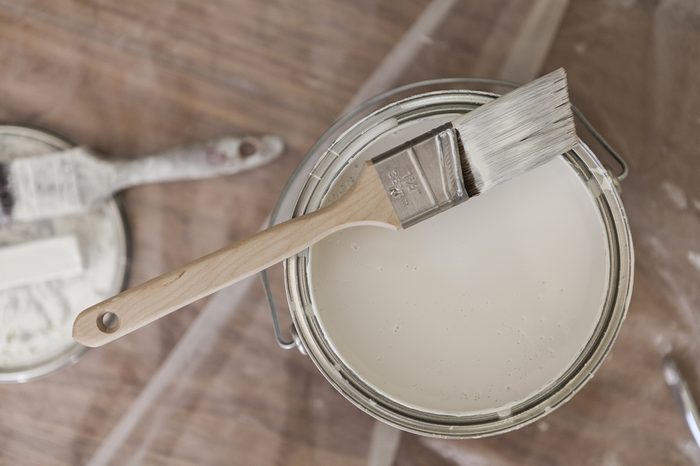
Old paint
Moving to a new home? Give the walls a good inspection. Homes built before 1978 are usually covered in lead-based paints—which becomes a problem when the paint starts to flake and it’s time to repaint. Highly toxic, lead can cause an array of health problems, including organ damage and lead poisoning, according to the Department of Housing and Urban Development. Make sure you never flush these 12 things down the toilet.
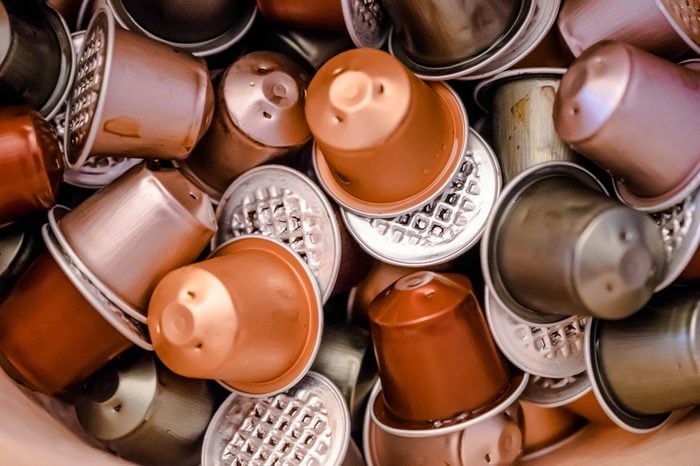
Coffee pods
Yes, they’re convenient, but the plastic pods aren’t biodegradable and they’re adding to the growing landfills each year. The German city of Hamburg has even banned the use of coffee pods in public buildings due to environmental concerns. As an alternative, choose recyclable coffee pods.
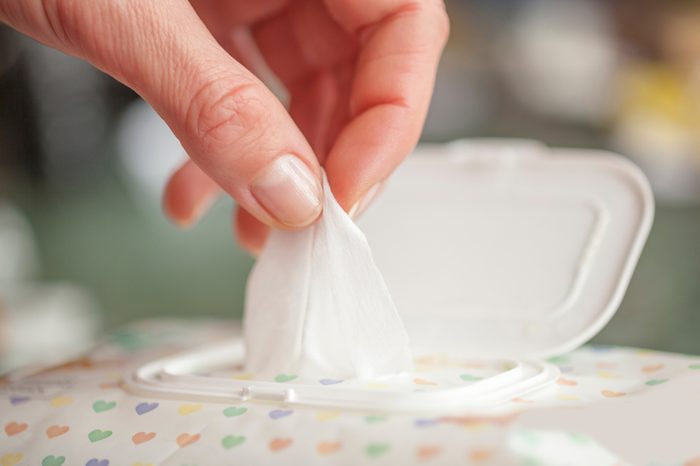
Wet wipes
From babies to grown adults, wet wipes are used on skin, tables, and pretty much every possible surface. They may be convenient, but the Environmental Working Group points out that the wipes can contain a cocktail of chemicals. Some contain a common preservative called phenoxyethanol that has been linked to eczema and respiratory health problems.
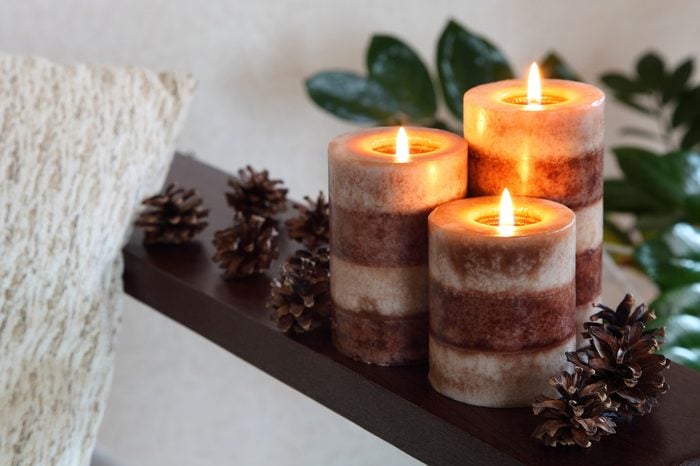
Scented candles
Apologies to fans of Bath and Body Works or Yankee Candle: Your favorite scents are actually made of benzene chemicals. According to the EPA, these toxins can cause reproductive issues and damage to the brain and central nervous system. It gets worse—as the candles burn, they release toluene, a proven carcinogen. This doesn’t mean that all candles are off-limits; soy-based candles are great replacements.

Pressed-wood products
Pressed wood can be found in hardwood floors, wall paneling, and furniture. The problem is that the wood particles are bound together with formaldehyde-based resin. According to the EPA, the chemical can cause watery eyes, burning sensations in the eyes and throat, and asthma attacks—plus, it may be carcinogenic. While the EPA published a rule to reduce formaldehyde emissions from certain wood products in 2016, even limited exposure puts you at risk.
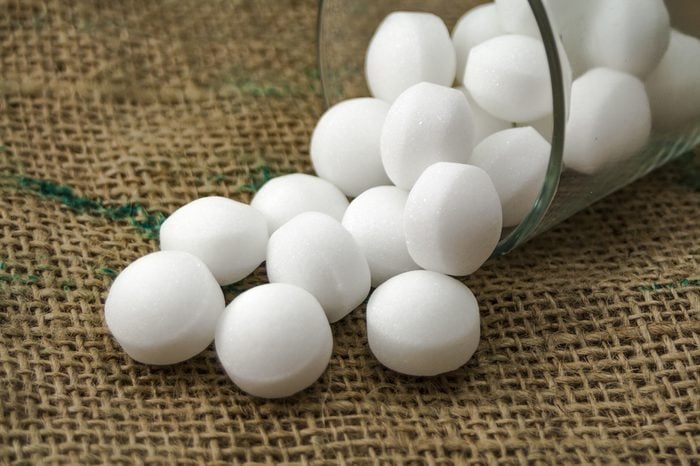
Mothballs
Widely used for pest control, mothballs slowly turn from solids to toxic vapor. According to the National Pesticide Information Center, the active ingredient is either naphthalene or paradichlorobenzene; both can be hard on your health. The chemicals become a gas when exposed to air, irritating the eyes and lungs with bouts of dizziness and nausea. Some countries have banned mothballs entirely due to these health risks.
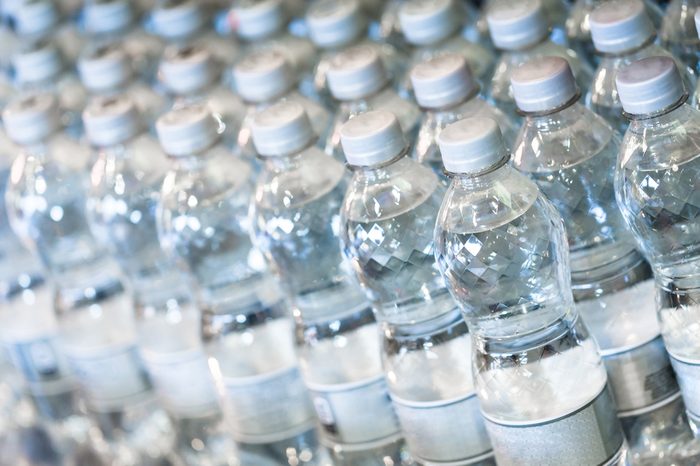
Old water bottles
That’s right—bottled water does expire. But it isn’t the water quality you should be worried about; it’s the plastic that the water comes packaged in (usually polyethylene terephthalate (PET) for retail bottles and high-density polyethylene (HDPE) for water cooler jugs). The plastic can begin leaching into the water, which affects the taste and could create a serious health hazard. It’s fine to pour expired water down the drain just never throw these 12 things down the drain.

Microwave popcorn
We all love a piping bowl of popcorn on movie night, but you may want to think twice about your go-to snack. According to Get Holistic Health, the finished product is laced with unhealthy chemicals and genetically modified organisms (GMOs). The bags are also lined with perfluorooctanoic acid (PFOA); the inner lining of popcorn bags contains traces of toxic materials that, not surprisingly, also contaminate the kernels.
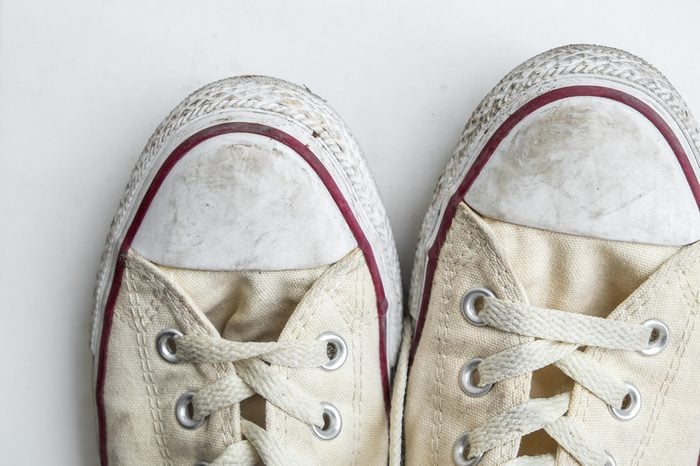
Old shoes
The smell alone should be reason enough to throw them out—but old shoes can actually be hard on your body. As the midsoles wear out, you’ll feel more impact with every step; and the soles themselves will wear unevenly, leaving you susceptible to overuse injuries. And if you keep throwing away your egg shells — don’t!
Sources:
Does It Go Bad: “Does Pancake Mix Go Bad? Storage, Shelf Life, Spoilage”
The Nest: “Are Dried Flower Arrangements Poisonous to Cats?”
Maeve Richmond, a home organization expert and founder of Maeve’s Method, tells Well and Good
Scientific Advances: “Microbiome analysis and confocal microscopy of used kitchen sponges reveal massive colonization by Acinetobacter, Moraxella and Chryseobacterium species”
FDA: “Risk Profile: Pathogen and Filth in Spices”
The Ecology Center: “Ecology Center report on toxic chemicals in jewelry covered by media outlets across the country”
Natural Resources Defense Council: “Hidden Hazards of Air Fresheners”
Ken Shirriff of How-To Geek
Harvard Health Publishing: “Is plastic a threat to your health?”
Reecha Kampani, OD, from Cleveland Clinic
NCBI: “Effectiveness of Air Filters and Air Cleaners in Allergic Respiratory Diseases: A Review of the Recent Literature”
Huffington Post: “10 Bra Mistakes You’re Probably Making (And How To Fix Them)”
The National Consumer Affairs Center of Japan: “Fabric fresheners potentially harmful to health, warns consumer center”
EPA: “LABORATORY EVALUATION OF NONSTICK COATINGS TO REDUCE INK ADHESION TO PRINTING PRESS COMPONENTS”
Department of Housing and Urban Development: “About Lead Based Paint”
Environmental Working Group: “The Trouble with Disinfecting Wipes”
National Pesticide Information Center: “Health Effects of Mothballs”
Get Holistic Health: “How Fast Food Damages Body”

